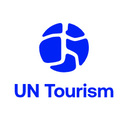Visa facilitation and air connectivity - key areas for tourism development in Africa
Visa facilitation and air connectivity are key areas to address in order to fully seize Africa's steadily rising tourism performance and foster sustainable development in the region. This was one of the main conclusions of the 5th Investment and Tourism Business Forum for Africa (INVESTOUR), which gathered 12 African Tourism Ministers and public and private tourism stakeholders, attending this yearly initiative held on the occasion of the Madrid International Tourism Fair (FITUR). (Madrid, Spain, 23 January 2014).
With international tourist arrivals growing by 6% in the region for the second consecutive year, Africa is one of the fastest growing tourism regions in the world. Between 2000 and 2013, international tourist arrivals more than doubled (from 26 million to 56 million). By 2030, UNWTO forecasts this figure to reach 134 million.
INVESTOUR, organized by UNWTO, FITUR and Casa Africa, promotes Africa´s tourism potential and the sector's importance as a catalyst of socio-economic development through partnerships with Portuguese and Spanish tourism companies. Attending the Forum were the Ministers of Tourism of Algeria, Benin, Cape Verde, Cote D´Ivoire, Democratic Republic of Congo, Ghana, Mozambique, Senegal, Seychelles, Tunisia, Zambia and Zimbabwe.
"Tourism is of rising importance to the African economies. Today we will focus on three barriers still hampering the full potential of tourism in the region: air connectivity, visa facilitation and hotel investment" said UNWTO Secretary-General, Taleb Rifai, opening the event. "56 visas to visit 56 countries is not acceptable. Only with collective efforts can we successfully address such barriers and continue to promote tourism in Africa as a tool for development while stimulating new business opportunities in Spain and Portugal", he added.
This year, a record of 134 tourism initiatives from 32 African countries and 40 Spanish and Portuguese companies gathered at INVESTOUR. A significant number of the participating projects seek to develop sustainable tourism offers in countries such as Cote D´Ivoire, Ethiopia, Kenya and Rwanda while several other projects sought partners for the creation or renewal of the hotel infrastructure.
A joint initiative of UNWTO, FITUR and Casa África, INVESTOUR promotes sustainable tourism development in Africa by opening up its destinations to the Spanish and Portuguese outbound and investment market, fostering the growth of Africa's entrepreneurial fabric and job creation.
Useful links:
V Tourism Investment and Business Forum for Africa (INVESTOUR)
About UN Tourism
The World Tourism Organization (UN Tourism) is the United Nations agency responsible for the promotion of responsible, sustainable and universally accessible tourism.
As the leading international organization in the field of tourism, UN Tourism promotes tourism as a driver of economic growth, inclusive development and environmental sustainability and offers leadership and support to the sector in advancing knowledge and tourism policies worldwide.
Our Priorities
Mainstreaming tourism in the global agenda: Advocating the value of tourism as a driver of socio-economic growth and development, its inclusion as a priority in national and international policies and the need to create a level playing field for the sector to develop and prosper.
Promoting sustainable tourism development: Supporting sustainable tourism policies and practices: policies which make optimal use of environmental resources, respect the socio-cultural authenticity of host communities and provide socio-economic benefits for all.
Fostering knowledge, education and capacity building: Supporting countries to assess and address their needs in education and training, as well as providing networks for knowledge creation and exchange.
Improving tourism competitiveness: Improving UN Tourism Members' competitiveness through knowledge creation and exchange, human resources development and the promotion of excellence in areas such as policy planning, statistics and market trends, sustainable tourism development, marketing and promotion, product development and risk and crisis management.
Advancing tourism's contribution to poverty reduction and development: Maximizing the contribution of tourism to poverty reduction and achieving the SDGs by making tourism work as a tool for development and promoting the inclusion of tourism in the development agenda.
Building partnerships: Engaging with the private sector, regional and local tourism organizations, academia and research institutions, civil society and the UN system to build a more sustainable, responsible and competitive tourism sector.
Our Structure
Members: An intergovernmental organization, UN Tourism has 160 Member States, 6 Associate Members, 2 Observers and over 500 Affiliate Members.
Organs: The General Assembly is the supreme organ of the Organization. The Executive Council take all measures, in consultation with the Secretary-General, for the implementation of the decisions and recommendations of the General Assembly and reports to the Assembly.
Secretariat: UN Tourism headquarters are based in Madrid, Spain. The Secretariat is led by the Secretary-General and organized into departments covering issues such as sustainability, education, tourism trends and marketing, sustainable development, statistics and the Tourism Satellite Account (TSA), destination management, ethics and risk and crisis management. The Technical Cooperation and Silk Road Department carries out development projects in over 100 countries worldwide, while the Regional Departments for Africa, the Americas, Asia and the Pacific, Europe and the Middle East serve as the link between UN Tourism and its 160 Member States. The Affiliate Members Department represents UN Tourism's 500 plus Affiliate members.
Rut Gómez Sobrino
Principal Media Officer
(+34) 91 567 81 60
UN Tourism
